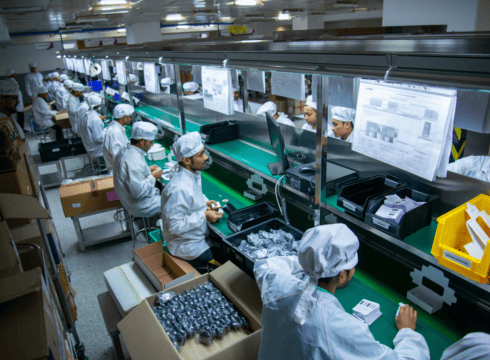Leading laptop companies have registered for the PLI scheme and some of them are ready to start manufacturing in India any time
August 30 has been set as the last date for the INR 17,000 Cr PLI scheme for manufacturing IT hardware
This comes barely days after the union government imposed registration mandates for importing laptops, tablets, and personal computers into the country
Inc42 Daily Brief
Stay Ahead With Daily News & Analysis on India’s Tech & Startup Economy
A few days after the government imposed restrictions on the import of laptops and tablets, it has now reportedly emerged that as many as 44 hardware manufacturers have applied for manufacturing in India under the production-linked incentive (PLI) scheme.
Sources told the news agency PTI that these hardware makers also include global players, who have registered to set up a base in the country. The sources did not disclose the names of the companies that have so far applied under the scheme.
“Leading laptop companies have registered for PLI and some of them are ready to start manufacturing in India any time. Global server companies have said that they want to make India an export hub for servers,” the official said.
August 30 has been set as the last date to apply for the INR 17,000 Cr PLI scheme for manufacturing IT hardware in the country, as per sources.
As per the report, the government is confident that the hardware production under the PLI scheme will emulate the ‘success’ achieved in the mobile phone manufacturing sector.
This comes barely a day after the union government imposed registration mandates for importing laptops, tablets, and personal computers into the country. Companies with valid licences will be able to import such products beginning November 1.
Citing its rationale behind the move, the Minister of State (MoS) for Electronics and Information Technology Rajeev Chandrasekhar had said that mandates were aimed at reducing import dependence and spurring domestic manufacturing of laptops and personal computers.
He also noted that the decision to restrict foreign imports was driven by security concerns to ensure that only trusted hardware enter the country. Meanwhile, the Directorate General of Foreign Trade (DGFT) has already operationalised a portal to streamline the licence registration process for companies.
As disposable income rises and the digital gap closes, India is emerging as one of the fastest-growing markets globally for laptops and tablets. However, the country is still largely dependent on imported products, albeit some of these products are still assembled in the country.
To cash in on the forecasted growth in excess of 11% in the local PC market over the next two years, the government has brought various incentives to attract foreign capital and scale the local manufacturing industry.
As per Counterpoint Research, the homegrown laptop and PC market size in India hovers around the $8 Bn mark annually, and nearly 65% of the units are imported. The space is led by the likes of foreign companies such as Lenovo, HP, Dell and Apple.
{{#name}}{{name}}{{/name}}{{^name}}-{{/name}}
{{#description}}{{description}}...{{/description}}{{^description}}-{{/description}}
Note: We at Inc42 take our ethics very seriously. More information about it can be found here.


